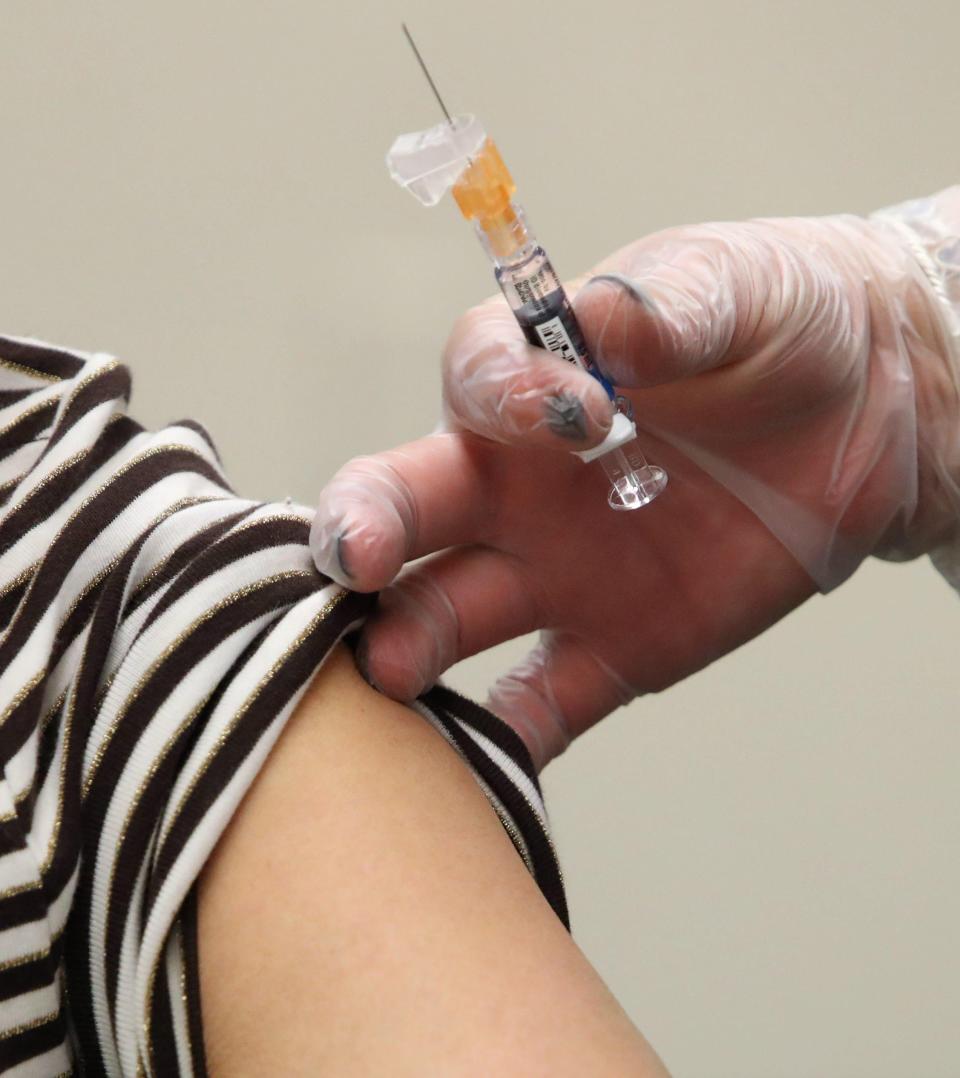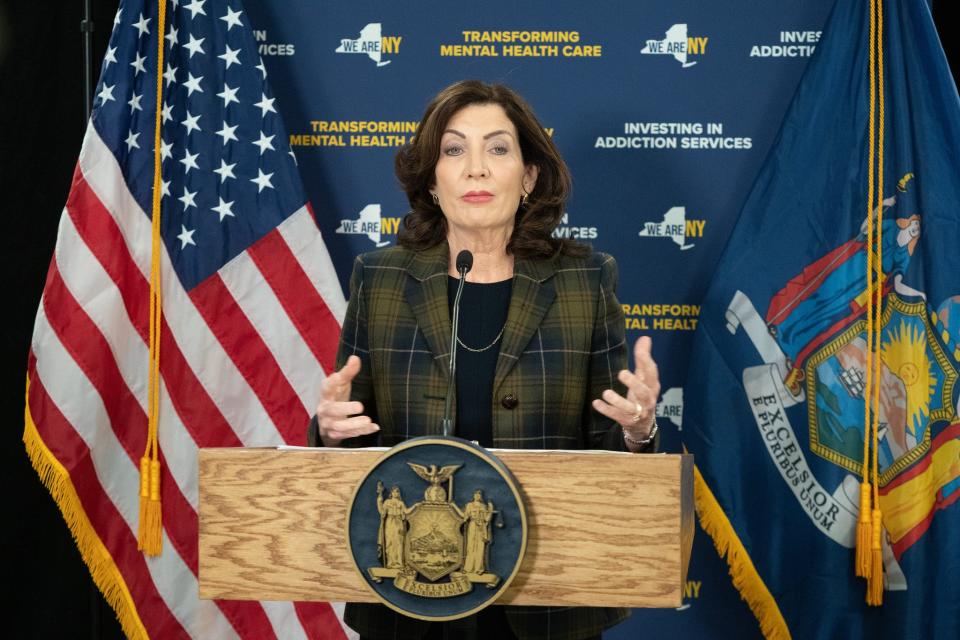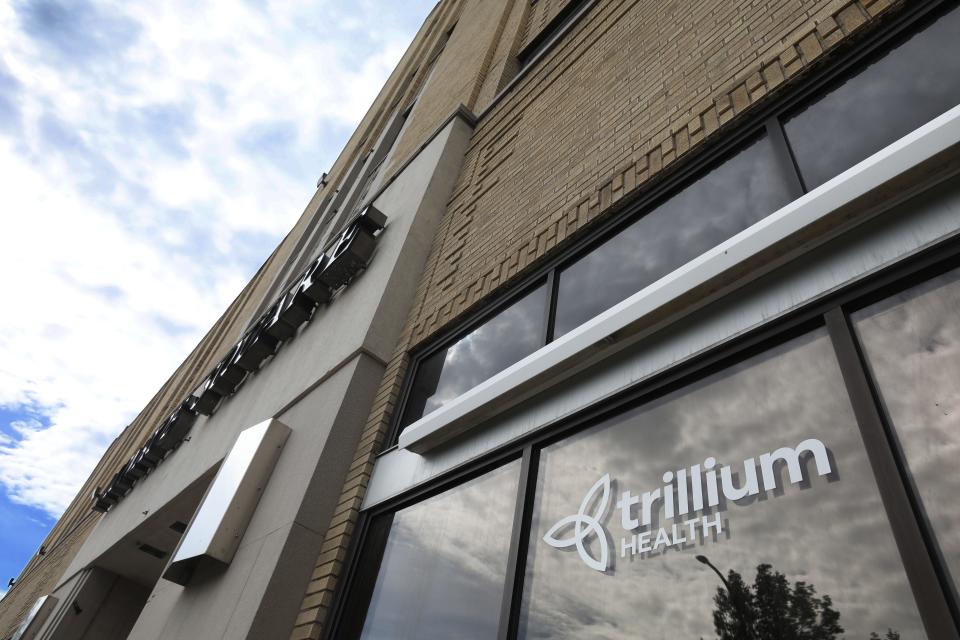NY trails in adult vaccination rates for tetanus, key diseases. Did pandemic make it worse?
New York lagged other states in adult vaccination rates for key illnesses, including tetanus and pneumonia, as the pandemic hit in 2020, ranking 44th worst or lower for select diseases at the time, the most recent federal data show.
Now, frontline doctors are raising new concerns that New York may slip further behind amid post-pandemic upticks in vaccine skepticism and anti-vax sentiments.
“The politicization of COVID was a setback,” said Dr. William Valenti, co-founder of Trillium Health in Rochester. “And we’ve got a lot of work to do.”
That work, in many ways, involves keeping pandemic-fueled and unfounded scientific distrust from spilling over into vaccines for other diseases. Slight drops in pediatric vaccination rates for disease like measles have already emerged, and concerns about similar trends in adults are mounting.
“Vaccine hesitancy has always been a background issue, but it seems to be accelerating now,” said Dr. Daren Wu, chief medical officer of the Open Door Family Medical Center in Westchester County.
What is New York's adult vaccination rate?

Nationally, New York ranked 44th lowest for its adult vaccination rate for tetanus (65%) and 46th lowest for pneumococcal (64%) in 2019 and 2020, a federal study shows. By contrast, the national average rate for those vaccines was about 70%.
New York also lagged in its shingles vaccination rate (27%), compared to nearly 32% national average at the time. Its rate for the flu shot (47%) ranked 24th, with the national average at 46%. The vaccination rates are survey-based estimates due, in part, to the fact some states, including New York, do not require that adult vaccinations be reported to systems that track shots.
Why New York ranks low

New York's low vaccination rates lingered despite it being among a handful of states that offer the most robust free vaccination programs for poor, uninsured and underinsured patients, the Government Accountability Office report noted.
With patient cost concerns removed, other systemic issues — such as growing primary care deserts and overburdened emergency and urgent care providers — seemingly contributed to the vaccination underperformance in New York.
“It’s just the pressure that providers and patients are under in terms of time, access, and getting it done, which is why I am a believer in trying to set policies,” Valenti said.
Health care crises: Never-ending wait times, crowded ERs: Finding a primary care doctor in NY is a nightmare
For some providers, including the Trillium clinics, those policies involve training nurses, office assistants and others dealing with patients to talk often and knowledgeably about the benefits of vaccines, he added.
In the pandemic’s wake, local health departments, which are the primary vaccine source for some of the most vulnerable populations, have also faced mounting staffing shortages.
Causes of the emerging public health staffing crisis ranged from low wages and worker burnout to the end of hundreds of millions of taxpayer-supported pandemic-era federal aid for vaccination programs, state and federal research show.
Some of that federal pandemic funding also supported new efforts to close racial and ethnic disparities in vaccination, but that momentum is endangered now as vaccine programs return to pre-pandemic levels.
‘Celebrate’ a vaccination win

“I’ll take the RSV vaccine, but I don’t want that COVID vaccine.”
That is what a 63-year-old patient declared during a recent visit to a Trillium clinic in Rochester, Valenti recalled.
Despite the scientific fact that both vaccines limit severe illness risks, the patient opposed the updated COVID-19 booster, which became a lighting rod for anti-vaccine sentiments and pandemic fatigue.
This patient was also not alone in that stance, as just 14% of adults in New York have received the updated COVID-19 vaccine launched last fall, state data show.
Waiting for care: Waiting longer in the ER? You're not the only one in the Rochester region
Faced with this type of vaccine hesitancy, Valenti would generally use what he called a “shared decision-making talk” to outline the benefits and limited safety risks of vaccinations.
His typical pitch? This vaccine “gets you feeling better faster, it keeps you out of the hospital, and it keeps you from dying.”
But Valenti chose against trying to convince this patient, instead deciding to “celebrate the win” of providing him with vaccine-related protection against RSV, or respiratory syncytial virus.
“The point is you can’t beat the patient up over this,” Valenti said, noting the patient’s openness to a relatively new RSV vaccine suggested he may consider an updated COVID shot during the next fall vaccination season.
NY health care: NY hospital safety ranking rises nationally. Check your local hospital's grade
“There’s progress there, and there is an opportunity,” he said, “and we’re going to keep doing what we can to protect public health and individual patients."
Why get the tetanus shot?
Tetanus is an uncommon but very serious disease that requires immediate treatment in a hospital. It is an infection caused by bacteria called Clostridium tetani (C. tetani), Centers for Disease Control and Prevention says.
Tetanus can cause serious health problems, including:
Laryngospasm (uncontrolled tightening of the vocal cords)
Fracture (broken bone)
Pulmonary embolism (blockage in lungs caused by a blood clot)
Aspiration pneumonia (lung infection from inhaling spit or vomit)
Breathing difficulty
Tetanus can lead to death (1 in 10 cases in the United States are fatal), but the number of cases overall nationally have dropped drastically over the past century amid the rise of vaccines.
From 2009 through 2017, a total of 264 cases and 19 deaths from tetanus were reported in the U.S.
Tetanus bacteria can get into someone's body through broken skin, usually through injuries, CDC says.
Tetanus symptoms
Symptoms typically occur between 3 and 21 days (average 8 days) after someone is exposed to C. tetani.
The first sign is most commonly spasms of the jaw muscles, or "lockjaw.”
Other symptoms can include:
Trouble swallowing
Sudden, involuntary muscle spams — often in the stomach
Painful muscle stiffness all over the body
Seizures (jerking or staring)
Headache
Fever and sweating
Changes in blood pressure and heart rate
When to get tetanus shot
People who have never received a tetanus vaccine are at increased risk from the disease. School vaccinations, however, require the Diphtheria and Tetanus toxoid-containing vaccine and Pertussis, or TDaP, vaccine.
Still, people who are not up to date with their 10-year tetanus booster shots are also at increased risk, CDC says.
Is tetanus curable?
Tetanus is a medical emergency, CDC says, and it requires:
Evaluation and care in the hospital
Immediate treatment with a human tetanus immune globulin (TIG) medicine that is typically used when someone isn't up to date with tetanus vaccination and has serious or contaminated wounds.
Aggressive wound care
Drugs to control muscle spasms
Antibiotics
Tetanus vaccination
Depending on how serious the infection is, someone with tetanus may need a machine to help them breathe, CDC noted.
This article originally appeared on Rockland/Westchester Journal News: NY trails in adult vaccination rates for tetanus, key diseases. Why?

